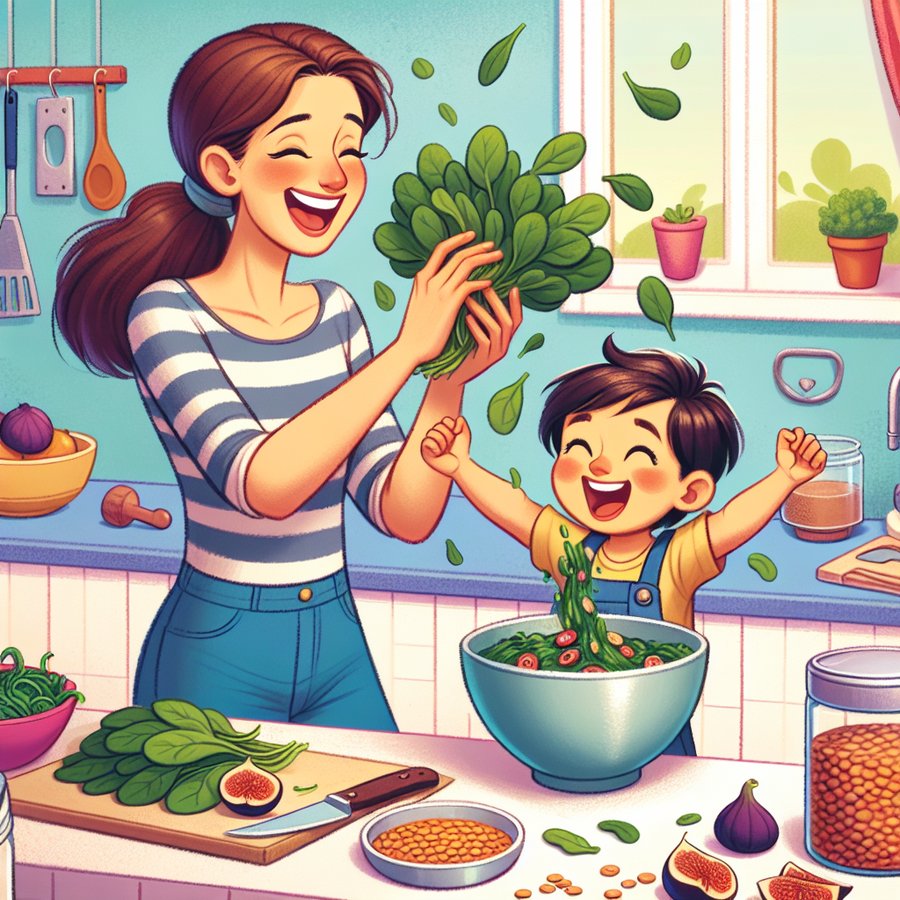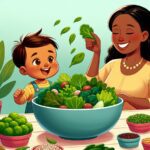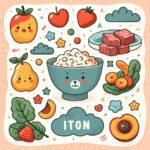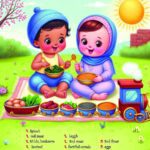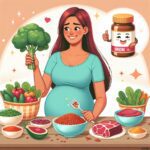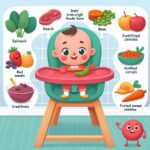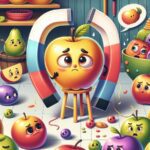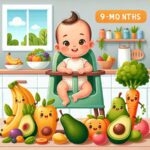Combating iron deficiency without meat in a toddler’s diet requires careful planning and knowledge of iron-rich plant-based foods. Iron is a crucial nutrient for growth and development, particularly in the early years of life. This article delves into practical and effective ways to ensure your toddler receives enough iron from sources other than meat, highlighting the importance of combining these sources with other nutrients for optimal absorption.
Understanding Iron Deficiency in Toddlers
Iron deficiency is one of the most common nutritional deficiencies in toddlers, leading to anemia and potentially affecting cognitive and physical development. While meat is a well-known source of iron, many parents seek alternatives due to dietary preferences, allergies, or ethical reasons. Recognizing the signs of iron deficiency, which can include fatigue, pale skin, and slowed growth, is essential for taking timely action.
It’s important to understand that there are two types of iron — heme and non-heme. Heme iron, found in animal products, is more easily absorbed by the body than non-heme iron from plant sources. However, with the right dietary strategies, you can enhance the absorption of non-heme iron, ensuring your toddler receives the necessary nutrients for healthy development.
Combating Iron Deficiency Without Meat in a Toddler’s Diet
Combating iron deficiency without meat in a toddler’s diet involves incorporating a variety of iron-rich plant foods and utilizing methods to boost iron absorption. Legumes, lentils, fortified cereals, leafy green vegetables, and tofu are excellent sources of non-heme iron. Preparing meals that include these foods can significantly contribute to meeting your toddler’s iron requirements.
To enhance iron absorption from plant sources, include vitamin C-rich foods in the same meal. For example, serving a lentil salad with bell peppers or squeezing lemon juice onto sautéed spinach can make a noticeable difference. Also, avoiding tea and coffee near meal times can prevent compounds in these beverages from inhibiting iron absorption. For more information, visit the World Health Organization’s guidelines on anaemia.
Incorporating Iron-Rich Foods into Your Toddler’s Diet
Integrating iron-rich foods into a toddler’s diet doesn’t have to be challenging. Start by introducing a variety of textures and flavors, such as smooth iron-fortified cereals, mashed beans, or finely chopped dark leafy greens. Including a source of vitamin C, like strawberries or oranges, with meals can further help with iron absorption.
Explore creative meal ideas that are both nutritious and appealing to toddlers. For instance, try blending spinach into fruit smoothies, incorporating lentils into veggie burgers, or making fun-shaped tofu nuggets. For more inspiration, check out these iron-rich vegetarian recipes for 9-month-old babies.
Monitoring and Maintaining Iron Levels
While focusing on dietary solutions, it’s crucial to monitor your toddler’s iron levels through regular check-ups with a healthcare provider. This will help identify any deficiencies early and adjust the diet accordingly. In some cases, a pediatrician may recommend iron supplements, but these should be used under supervision, as excessive iron can be harmful.
Remember, a balanced diet that includes a variety of nutrients is the key to preventing iron deficiency. Alongside iron-rich foods, ensure your toddler’s diet contains adequate amounts of protein, fiber, vitamins, and minerals to support overall health and development. For additional guidance, consider consulting a registered dietitian specializing in pediatric nutrition.
In conclusion, combating iron deficiency without meat in a toddler’s diet is entirely feasible with the right knowledge and approach. By incorporating a diverse range of plant-based iron sources, enhancing iron absorption through smart food combinations, and maintaining regular health check-ups, you can ensure your toddler grows up healthy and strong.
For more information on nutrition for toddlers, visit our comprehensive guides on nutritional needs for premature babies and vegan baby nutrition plans for the first year.

